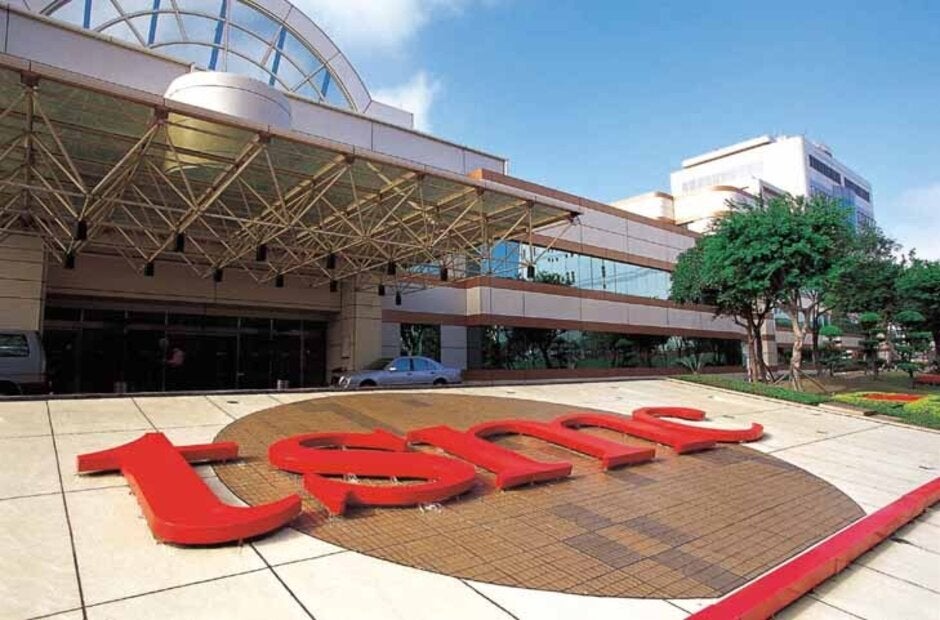Huawei's decision allows Apple to order additional 5nm chips for its 2020 5G iPhone models

Apple designs the "A series" chipsets that power the iPhone, but since the company is "fabless" and doesn't own the facilities to manufacture its chips, the company turns to Taiwan Semiconductor Manufacturing Company (TSMC) to produce its integrated circuits. TSMC is the largest independent foundry in the world and Apple is its biggest customer. TSMC also churns out chips for Huawei, Qualcomm, and many other chip designers.
UPDATE: As pointed out by one of our readers, the 10,000 additional chips that Apple has ordered after Huawei's cancellation could refer to chip dies. The original source mentioned 10,000 chips but something might have been lost in translation. It makes more sense to believe that 10,000 chip dies are involved since that could actually be used to produce as many as 6-8 million 5nm A14 Bionic chips.
The current chips used to power iOS and Android handsets are made using the 7nm process node. This measures the number of transistors that fit inside a specified space. The 7nm A13 Bionic has 8.5 billion transistors inside. The A14 Bionic will use TSMC's new 5nm process allowing 15 billion transistors to be packed inside each chip; this is important because the more transistors that fit inside a chip, the more powerful and energy efficient it is. 5nm chips will have a transistor density of 171.3 million transistors per square millimeter, an 84% improvement from the currently used 7nm chips.
Apple snaps ups production slots for 10,000 5nm chipsets from TSMC that Huawei canceled
So the bottom line is that the Apple iPhone 12 series could be the first smartphones to use a 5nm SoC. And according to IT Home, Apple has ordered an additional 10,000 5nm chipsets for the calendar fourth quarter; considering the process node and the delivery time frame, these are probably additional A14 Bionic chipsets for the iPhone 12 line.

TSMC will be manufacturing Apple's A14 Bionic chipsets for the iPhone 12 family
TSMC has been out of available production slots thanks to heavy demand. In fact, business has been so good that you could be excused for thinking that TSMC stood for Toilet Supplies Manufactured for COVID-19. And the only reason that TSMC is able to produce the 10,000 additional A14 Bionic chips for Apple is because Huawei canceled an order for 10,000 5nm chips. While neither TSMC nor Huawei has gone into details about this order, the foundry is expected to produce Huawei's Kirin 1012 SoC later this year using the 5nm process. The component has yet to be announced, but it reportedly would be the successor to the 7nm Kirin 990 5G that is being employed on the manufacturer's new P40 series and would debut on the Mate 40 line later this year.
With TSMC production slots in great demand, why would Huawei decide to let 10,000 chips go? Huawei might have cut the order because it expects that the combination of the coronavirus crisis and the company's continued placement on the entity list will have a negative impact on demand. The manufacturer is still unable to access its U.S. supply chain and the Trump administration is trying to make things worse. Under the Foreign Direct Product Rule, the U.S. has the right to control the export of foreign products, like Huawei's Kirin chipsets, that contain 25% or more U.S.-origin content by value. But if that threshold is reduced to 10% as the White House wants, the U.S. government will be able to really shut off Huawei's access to major smartphone components.
Not only is TSMC's 5nm production booked through the end of the year, it's 7nm production is also all accounted for through 2020. The foundry says that despite all of the problems that COVID-19 has created, TSMC is on track as far as its 5nm process node is concerned. While the company will produce Apple's 5nm A14 Bionic chipset and Huawei's 5nm Kirin 1012 SoC, it will also be manufacturing the 5nm Qualcomm Snapdragon 875 Mobile Platform. The latter will be employed on most high-end and flagship Android handsets in 2021.
TSMC has already started construction of the production facilities it will use to create 3nm chips starting in 2023; the facilities will cost TSMC a reported $19.5 billion to build.










Things that are NOT allowed: